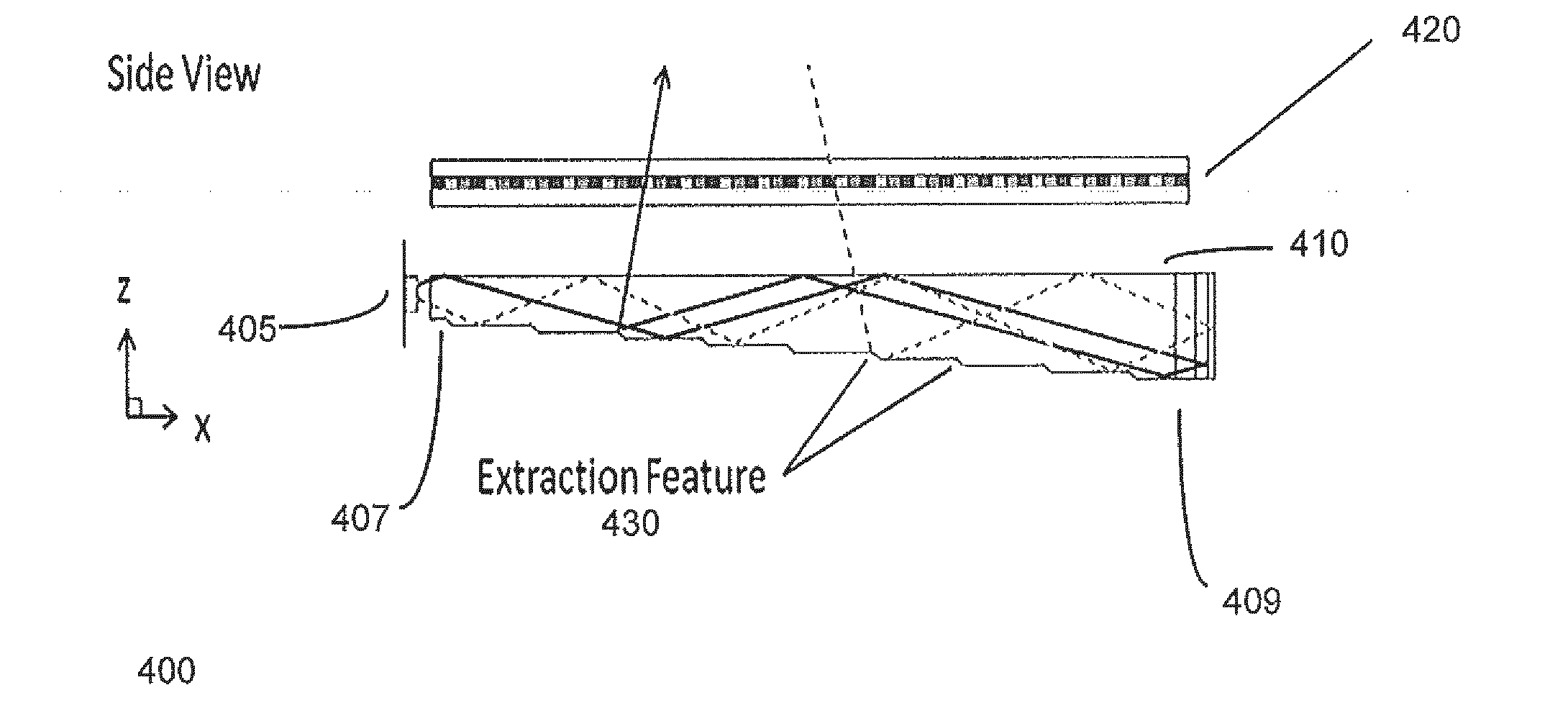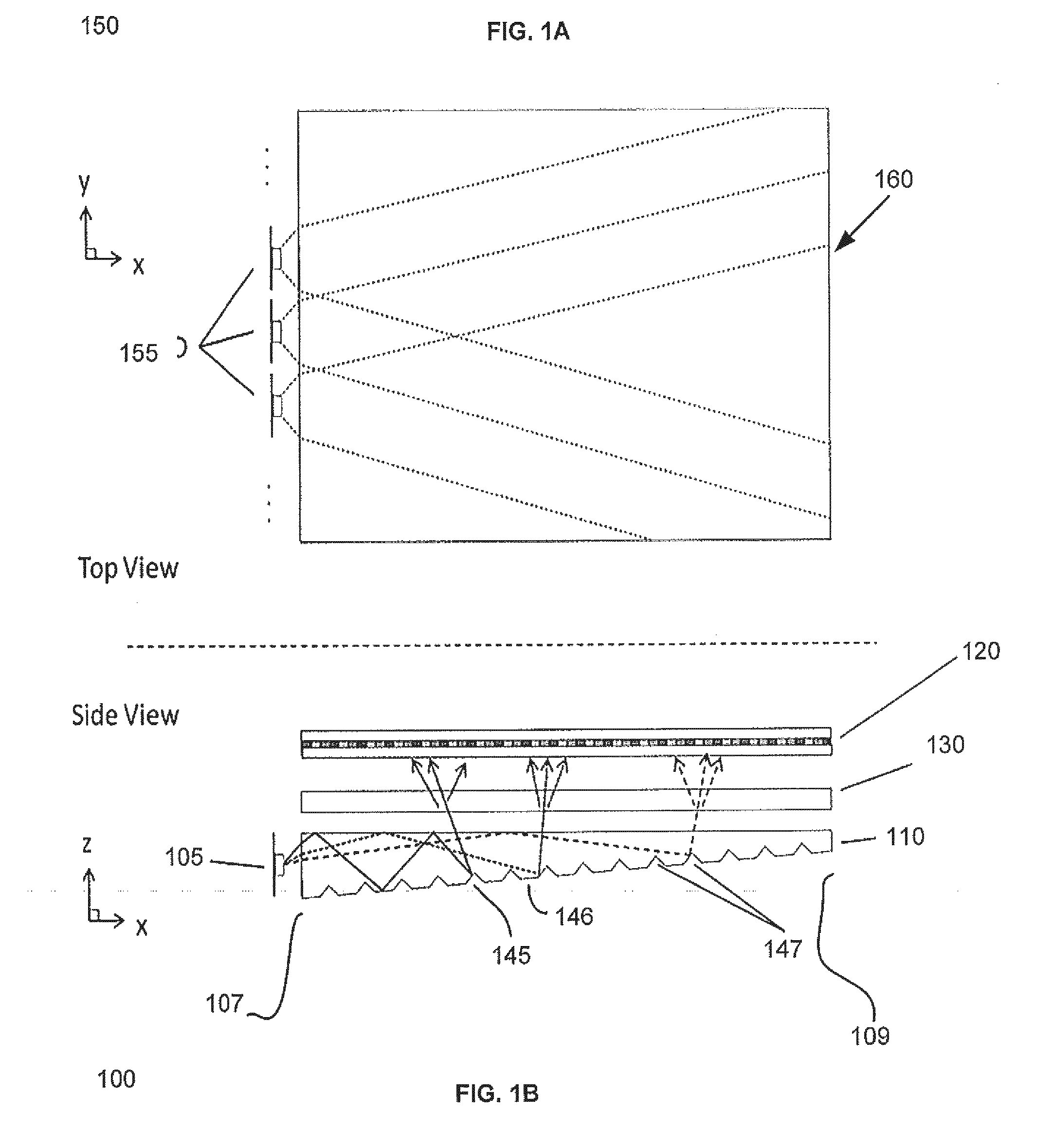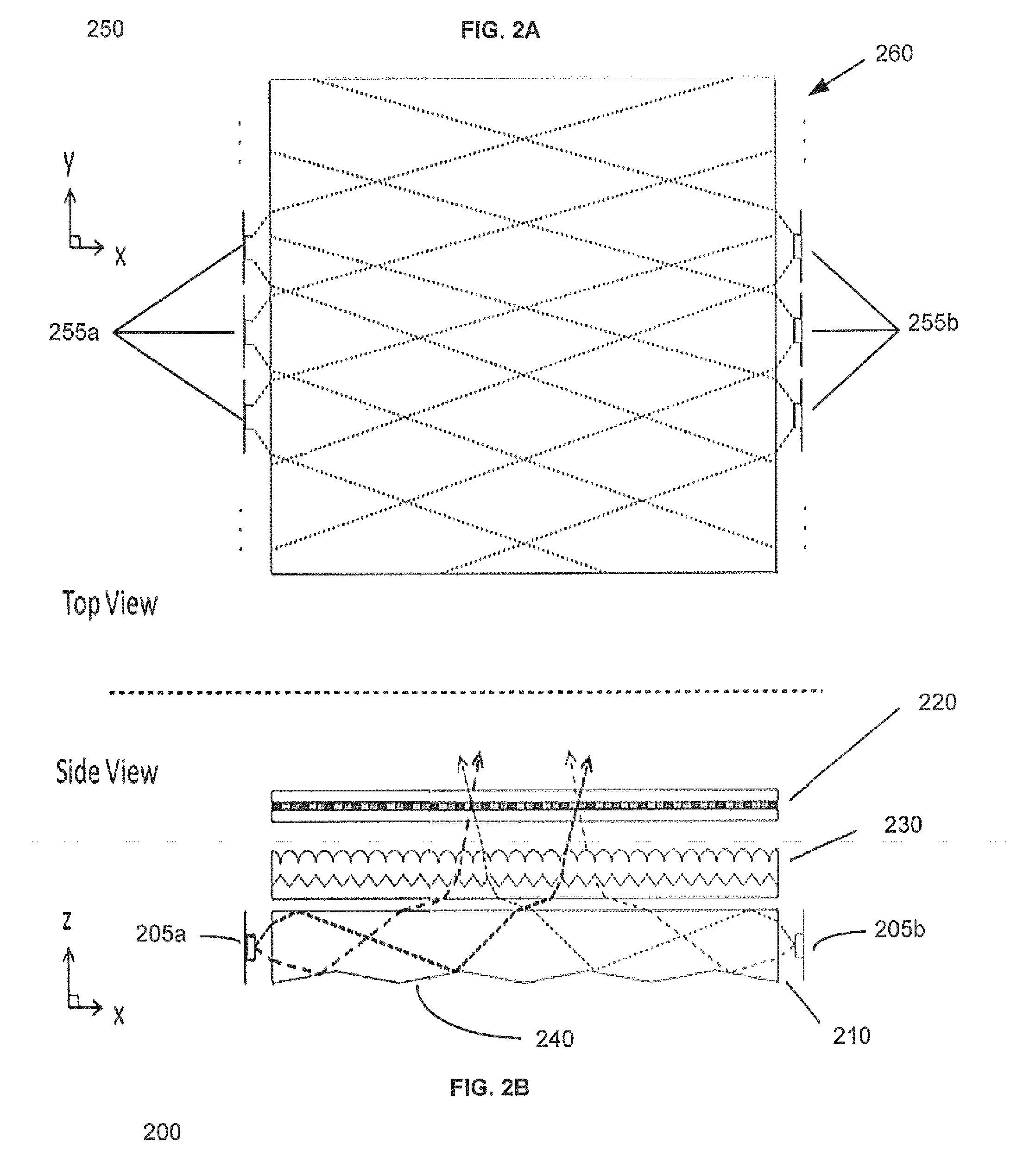Directional flat illuminators
a technology of illuminators and flats, applied in the field of light guides, can solve the problems of increased image crosstalk, non-uniform viewing windows, and limit the viewing freedom of the display, and achieve the effect of low loss
- Summary
- Abstract
- Description
- Claims
- Application Information
AI Technical Summary
Benefits of technology
Problems solved by technology
Method used
Image
Examples
Embodiment Construction
[0064]Generally, in the present disclosure, a method for guiding light by employing an optical valve may allow light rays to propagate in a first direction through the optical valve, and the light may propagate in the first direction with substantially low loss. Additionally, the optical valve may allow the light rays to interact with an end surface of the optical valve and also may allow the light rays to propagate in a second direction through the optical valve, and while propagating in the second direction, at least some of the light rays may encounter at least one extraction feature and may be extracted from the optical valve.
[0065]According to another aspect of the present disclosure, a light valve for guiding light, may include a first light guiding surface, wherein the first light guiding surface is substantially planar, and a second light guiding surface which may be opposite the first light guiding surface and may further include a plurality of guiding features and a plural...
PUM
 Login to View More
Login to View More Abstract
Description
Claims
Application Information
 Login to View More
Login to View More - R&D
- Intellectual Property
- Life Sciences
- Materials
- Tech Scout
- Unparalleled Data Quality
- Higher Quality Content
- 60% Fewer Hallucinations
Browse by: Latest US Patents, China's latest patents, Technical Efficacy Thesaurus, Application Domain, Technology Topic, Popular Technical Reports.
© 2025 PatSnap. All rights reserved.Legal|Privacy policy|Modern Slavery Act Transparency Statement|Sitemap|About US| Contact US: help@patsnap.com



